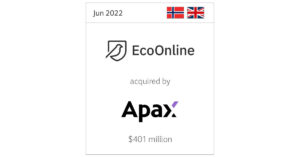Read Arma’s view on private markets winning favour with investors over public markets, and what that has meant for European technology companies, in full on Forbes here.
The growth of private markets, resulting in the widespread availability of private capital which disincentivises companies from publicly listing, has shaped the digital economy over the last ten years. This change was exacerbated by the onset of Covid-19, during which earlier-stage technology companies managed to raise capital from VCs and growth equity funding in great volumes.
However, during the pandemic, it was arguably in the public markets where we saw the most exuberant deployment of capital into tech companies. The S&P 500 Information Technology Index rose by over 150% between March 2020 and December 2021. However, in the current environment, the fortunes of publicly traded tech companies have turned: the same index is down over 21% year-to-date. Valuations in public equity markets, which are more volatile and have a tendency to overreact in both a bull and bear market, have now sunk below private market levels. Concurrently, investors’ appetite to invest in high-growth but unprofitable companies has waned.
The S&P 500 Information Technology Index rose by over 150% between March 2020 and December 2021. However, in the current environment, the fortunes of publicly traded tech companies have turned: the same index is down over 21% year-to-date. Valuations in public equity markets, which are more volatile and have a tendency to overreact in both a bull and bear market, have now sunk below private market levels.
In Europe, “old economy” companies appear in greater numbers on stock markets compared with US markets, which are more tech-heavy.
Private equity investors should see these changes as an opportunity to seek out quality assets that have seen their stock prices fall and take them private at an appealing price. We can already see this happening in the US: Vista Equity Partners recently announced that it will acquire the publicly listed tax automation company Avalara, and Thoma Bravo acquired public companies SailPoint, Anaplan and Ping Identity for a total of c.$20 billion combined.
In H1 2022, there was a 22.4% year-on-year uptick in the cumulative European M&A value of take-private activity, with deals worth €17.5bn. Apax Partners’ pending $401m take-private of Norwegian environmental, health and safety software company EcoOnline.
In Europe, “old economy” companies appear in greater numbers on stock markets compared with US markets, which are more tech-heavy. Several companies with European headquarters have chosen to list on the NYSE or Nasdaq. This means that those tech businesses which are listed on European exchanges trade in shallower, less liquid markets, already making public ownership less attractive. This has been compounded by the STOXX Europe 600 Technology Index recording a comparatively greater drop of over 28% to date in 2022, alerting private equity buyers to potential bargains. Finally, with pan-European stock market Euronext having attracted a flurry of IPOs by tech companies with the low costs and short timeframes for them to list on its junior exchanges, many ofthese are now prime targets for take-private buyouts at a discounted price.
As a result, in H1 2022, there was a 22.4% year-on-year uptick in the cumulative European M&A value of take-private activity, with deals worth €17.5bn. An example of this includes Apax Partners’ pending $401m take-private of Norwegian environmental, health and safety software company EcoOnline.
Six months into this market correction, increasing numbers of shareholders and executives will realise that selling to private equity, even at a discounted price, will yield benefits for all. As such, we expect to see the steady stream of European tech companies being taken back to private ownership to continue.




